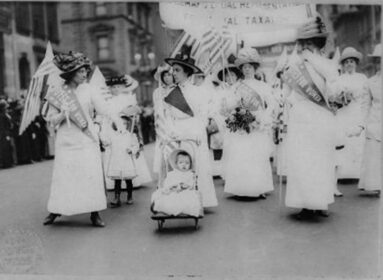Tisha B’Av begins at sundown on July 19. The ninth day of the Hebrew month of Av – is often considered the “saddest” day on the Jewish calendar. A fast day that commemorates the destruction of both the First and Second Temples, it is the culmination of a three week period of increasing mourning that begins with the fast of the 17th of Tammuz, when the walls of Jerusalem were first breached, leading to the destruction of the First Temple.
While Tisha B’Av is primarily intended to recall the destruction of the Temples, both of which were destroyed on the ninth of Av, it is also considered a day to mourn the many other tragedies that have befallen the Jewish people on this day. Among them:
– Spies return with evil reports from the land of Israel, leading the Jewish people to cry in despair and God to decree that the children of Israel wandering in the desert would not be permitted to enter the land of Israel;
– The last fortress to hold out against the Romans during the Bar Kochba revolt falls, sealing the fate of the Jewish people. Over 100,000 Jews were killed;
– The First Crusade is declared by Pope Urban II, bringing death and destruction to thousands of Jews, and obliterating many communities in Rhineland and France.
– The Inquisition in Spain and Portugal culminates in the expulsion of the Jews from Spain in the year 1492. Tisha B’Av is set as the final date by which not a single Jew is allowed on Spanish soil.
– Jews are expelled from England in the year 1515, accompanied by pogroms.
– World War I breaks out in 1914 when Germany declared war on Russia. German resentment from the war set the stage for the Holocaust.
– Deportations from Warsaw Ghetto to the Treblinka concentration camp begin in 1942.
Observing the day
Like Yom Kippur, Tisha B’Av is preceded by a meal called a “Seudah HaMafseket.” Unlike the elaborate feast served prior to Yom Kippur, however, the last meal before Tisha B’Av is typically one course and consists of bread, water and a hard-boiled egg, whose round shape signifies the cycle of life and whose ability to grow harder as it is cooked symbolizes the fortitude of the Jewish people in the face of adversity. As a sign of mourning, the egg is often dipped in ashes and eaten alone, while sitting on the floor.
Beyond the prohibition on eating and drinking that begins at sundown, the fast day includes many of the same restrictions as Yom Kippur (which may be suspended for medical reasons), including these expressions of mourning:
– Refrain from washing, bathing, shaving, wearing cosmetics. Ritual washing is permitted.
– Refrain from wearing new clothing or shoes or clothing made of leather.
– Refrain from washing clothes or getting haircuts.
– Refrain from listening to music, going to the movies, or engaging in other forms of entertainment.
– Refrain from sexual relations.
– Refrain from Torah study – though it is permitted to learn texts relevant to the day, such as the book of “Eichah” (Lamentations) and Job.
– Refrain from greeting people or giving gifts
It is customary to read the Book of Eichah – Lamentations – on Tisha B’Av, both at night and during the day: a series of deeply impassioned and poetic dirges in which the prophet Jeremiah implores the Jewish people to repent and describes in detail Jerusalem under siege and the utter destruction of the First Temple.
Traditionally, Eichah is read softly at first, with the reader building to a crescendo in which the entire congregation joins in to sing: “”Turn us to you, O Lord, and we will return. Renew our days as of old.”








 Southern New England Jewish Ledger
Southern New England Jewish Ledger














Comments are closed.